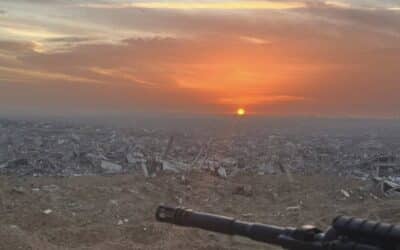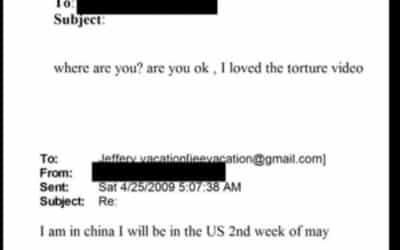Our friend Edward Lozansky left this world last week. He was a long-time writer for Antiwar.com. His many articles can be found here and on our blog here. He was president and founder of the American University in Moscow and the U.S.-Russia Forum. He is also a professor at the Moscow State and National Research Nuclear Universities.
Acclaimed Journalist and his friend Martin Sieff wrote this remembrance today:
Soviet and American physicist and political figure Edward Lozansky dies in the USA on April 30, 2025.
Edward Dmitrievich Lozansky was born in Kiev on February 10, 1941. He graduated from the Kurchatov Institute of Atomic Energy with a degree in theoretical nuclear physics. He was a researcher at the Kurchatov Institute of Atomic Energy and the Joint Institute for Nuclear Research in Dubna. At the same time, he taught at the Malinovsky Armored Forces Academy.
In 1976, he moved to the United States, became a US citizen, and lived in Washington, DC. In 1990, he founded the American University in Moscow (now Moscow International University).
In recent years, he actively participated in the work of the Assembly of the Peoples of Eurasia and Africa and was the US moderator of the international public forum “The Spirit of the Elbe: A Bridge of Trust, Friendship, and Cooperation,” which was held with great success on April 15, 2025.
A word of remembrance from Martin Sieff, joined by the entire editorial staff of the Pluralia project.
Such appears to be the case with my dear friend of nearly 40 years, Professor Edward Lozansky, President of the American University in Moscow and founder of (among much else) of Russia House in Washington, who died in Washington on April 30 at the age 84.
It was indeed an extraordinarily fitting and monumental departure from such an extraordinary life that had been so passionately dedicated to the rescuing and survival of the human race from the supreme threat of thermonuclear world war, under which the entire globe still trembles.
For Ed was in Moscow organizing and leading manifold ceremonies commemorating the Spirit of the Elbe – the 80th anniversary on the very day of his death, of the meeting of the Soviet and US armies at Torgau on the banks of the River Elbe in Germany that sounded the death knell of Adolf Hitler’s infamous Third Reich on April 30, 1945.
For well over a quarter century, Ed was a major figure in both Washington and Moscow – in both of which cities he set up great institutions and educated generations of leaders on the need for Russian and American mutual understanding, coexistence, partnership and friendship to lead and renew the world.
He founded and ran the American University in Moscow. He also served as a Professor at National Research Nuclear University in Moscow. He founded and was the editor-in-chief of the online magazine “New Kontinent” (Kontinent USA). It became a platform for US dissidents who questioned the Republican-Democratic consensus on the waging of endless, bloody, costly wars around the world smashing societies in Africa, Europe and across the Middle East and Eurasia.
He was also a great admirer of Pluralia and when he died was working with his usual vision, generosity and limitless energy to set up cooperative programs between Pluralia and his recently founded Academy for International Cooperation.
He was a deeply happy private man with his beautiful wife Tatiana, their two daughters and grandchildren. He had close, admiring friends on every continent. And he was the warmest and most loyal of friends himself.
Ed had been a Soviet nuclear physicist. He had defied the KGB. He became a prominent anticommunist columnist for the Washington Times and deeply impressed American leaders including President Ronald Reagan and Vice President Dan Quayle (an intelligent, highly responsible and admirable man, as I can personally testify – and vastly different from the cartoon dolt depicted by the braying asses of the New York Times, the Washington Post and the other so-called mainstream US media.)
He published at least 13 books and more than a thousand articles. He was a polymath. He made major contributions in physics, mathematics, biophysics, and political science.
Ed was principled and fearless. He worked at Moscow State University and Military Tank Academy. But in 1975, he lost all of his research and teaching positions because of his outspoken public criticism of Soviet foreign and domestic policies. He was able to move to the United States the following year where he did important research at the Laser Fusion lab at the University of Rochester, New York, and taught at the American University in Washington, DC. His work on fusion power was literally half a century ahead of its time.
He embraced the end of the Cold War and worked tirelessly for 35 years for understanding and fruitful cooperation between the American and Russian peoples. Right up to his death he was tireless and exceptionally successful in organizing conferences and seminars, promoting US- Russia science, education, and cultural exchanges. In 1986 he co-edited a series of essays on nuclear dangers and coexistence with the legendary Soviet physicist and peace activist Andrei Sakharov. They were close friends as well as collaborators.































